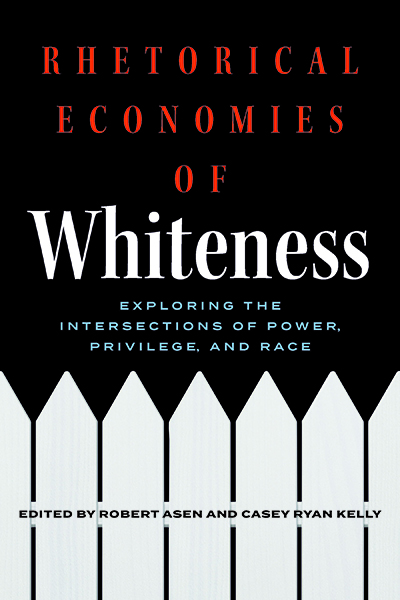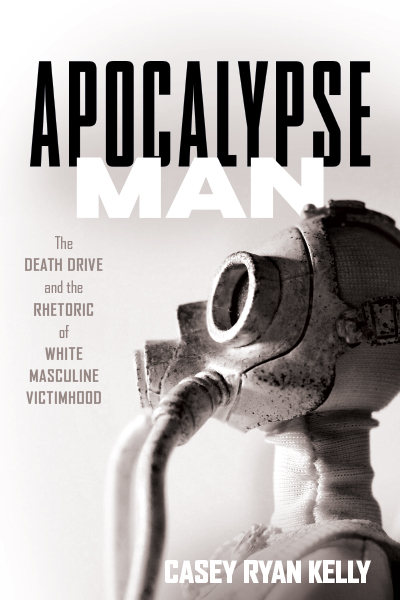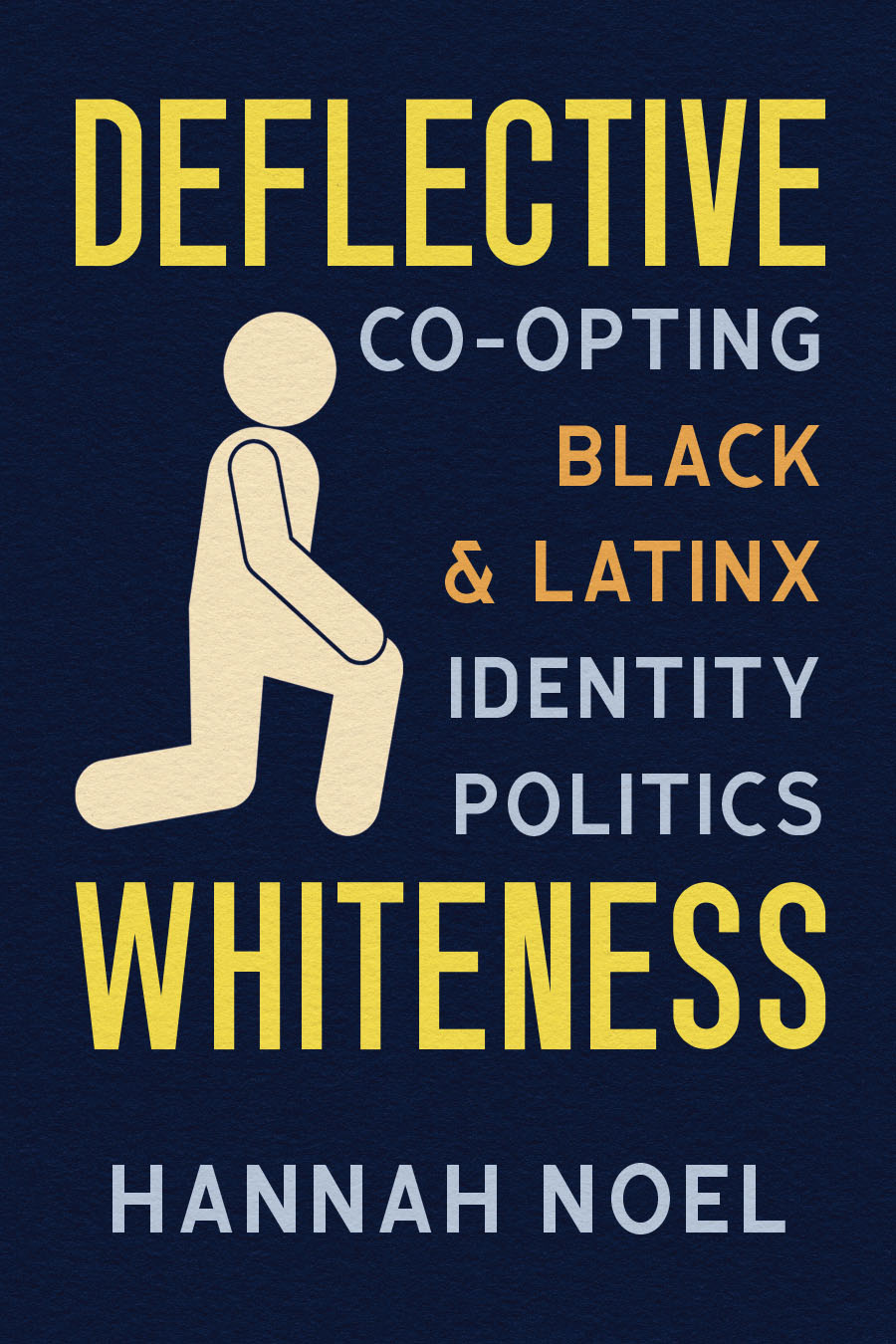“This book could be used in political science, economics, rhetorical studies, cultural studies, and media studies....Summing Up: Recommended. Lower-division undergraduates through faculty; professionals.” —C. L. Lalonde, CHOICE
“[Rhetorical Economies of Whiteness] contributes to ongoing conversations about the structural, cultural, and psychological dimensions of whiteness....All in all, its thoughtful analyses and diverse methodologies make the book essential reading for scholars, educators, activists, and students in fields such as rhetoric, communication studies, education policy, critical race theory, and sociology.” —Weiwei Yu, Studia Neophilologica
“Rhetorical Economies of Whiteness brings multilayered and nuanced discussions throughout American studies, media studies, and critical whiteness studies into the field of rhetorical studies. Contributors offer impressive racial rhetorical criticisms that theorize our contemporary moment with urgency.” —Hannah Noel, author of Deflective Whiteness: Co-Opting Black and Latinx Identity Politics
“Rhetorical Economies of Whiteness has major implications for the study of rhetoric, especially for scholars studying rhetoric as a discursive practice or phenomenon unmoored from its material, embodied, spatial, and procedural dimensions. It does the important work of illustrating how economies affect real people in real contexts.” —Christina Cedillo, cofounder of the Journal of Multimodal Rhetorics
Rhetorical Economies of Whiteness examines the interplay of rhetoric, whiteness, and economics—attending not only to how economic arrangements that sustain whiteness are rhetorically enacted and legitimated but also to how rhetoric itself operates as an economy to give identities exchange value. Case studies across the volume illustrate how economic and class structures incentivize adherence to whiteness as both an identity formation and a form of symbolic capital. Some contributors investigate issues of public policy—analyzing judicial appointments, housing, and education—while others explore intersections of politics, sports, news and entertainment media, and culture. Wide-ranging, complementary methods—textual and discourse analysis, archival approaches, ethnographic interviewing and focus groups, personal narratives and storytelling—exemplify the insights gleaned from different approaches to studying intersections of race and economics across and within societies. Taken together, these essays help to explain how whiteness so quickly adapts to evade antiracist challenges and why investments in whiteness are so difficult to dislodge.
Contributors:
Godfried Asante, Robert Asen, Charles Athanasopoulos, Paulami Banerjee, Anne Bonds, Linsay M. Cramer, Derek G. Handley, V. Jo Hsu, Kelly Jensen, Casey Ryan Kelly, Kyle R. Larson, George (Guy) F. McHendry Jr., Thomas K. Nakayama, Adedoyin Ogunfeyimi, Rico Self, Stacey K. Sowards, Corinne Mitsuye Sugino

Robert Asen is the Stephen E. Lucas Professor of Rhetoric, Politics, and Culture at University of Wisconsin–Madison. He is the author of numerous books, including School Choice and the Betrayal of Democracy: How Market-Based Education Reform Fails Our Communities, and he has coedited multiple volumes, including Text + Field: Innovations in Rhetorical Method.

Casey Ryan Kelly is Professor of Rhetoric and Public Culture at University of Nebraska–Lincoln. He is the author of five books, including Caught on Tape: White Masculinity and Obscene Enjoyment and Apocalypse Man: The Death Drive and the Rhetoric of White Masculine Victimhood, and has won numerous awards from the National Communication Association.
Contents
Introduction Economizing Whiteness, Rhetoricizing Economy: Investigating Discourses of Whiteness and the Production of Racial and Economic Inequality
Robert Asen and Casey Ryan Kelly
Chapter 1 “The Cause Is the Consequence”: Biden’s Nomination of Justice Ketanji Brown Jackson and the Right to Include
Corinne Mitsuye Sugino and Charles Athanasopoulos
Chapter 2 Racially Restrictive Covenants and the Spatialization of Race: Whiteness as Property and the Rhetorics of Whiteness
Derek G. Handley and Anne Bonds
Chapter 3 Gradations of Self-Reflexivity: Reckoning with Racial Privilege in Progressive White Parents’ School Choice Discourse
Kelly Jensen
Chapter 4 Rhetorical Economies of Whiteness through Citizenship Excess in Higher Education
Godfried Asante, Paulami Banerjee, Adedoyin Ogunfeyimi, and Stacey K. Sowards
Chapter 5 The Master Narrative: A Black Nihilistic Reading of Race, Black H(a)unting, and US Higher Education
Rico Self
Chapter 6 Jeremy Lin and the Global Rhetorical Economy of Whiteness
Linsay M. Cramer
Chapter 7 Parasitic Movement in the Public Sphere
George (Guy) F. McHendry Jr. and Kyle R. Larson
Chapter 8 Cisnormativity as Rhetorical Obstruction: The Silencing Effects of White and Cisgender Innocence
V. Jo Hsu
Afterword The Endgame of Whiteness
Thomas K. Nakayama
List of Contributors
Index




